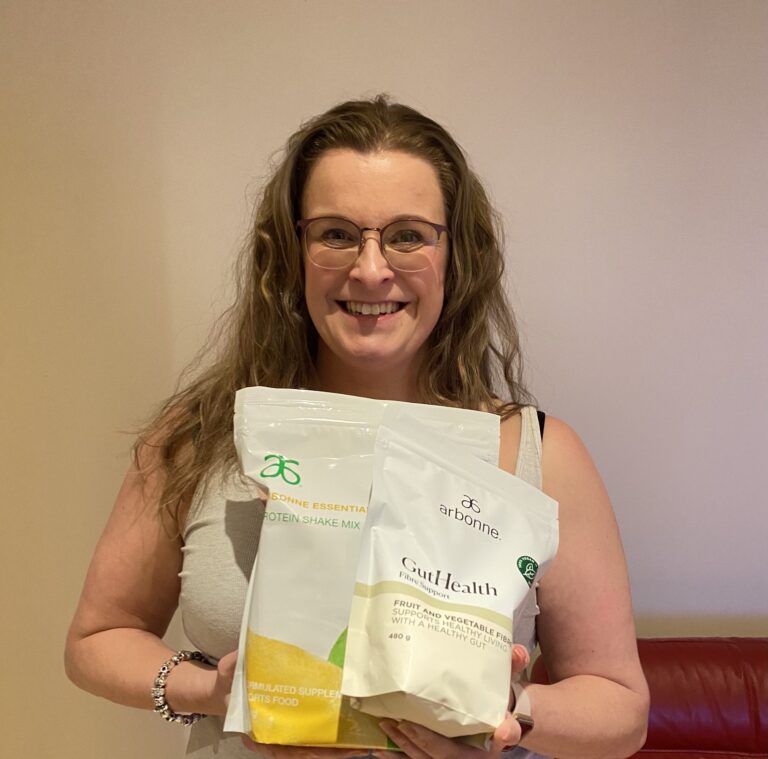Living in this modern world, we’re often running around at a rapid pace, and barely have time to breathe, let alone relax and enjoy a moment of peace. How often have you felt light-headed at the pace of our lives? How does this make you feel? Do you wonder if you’ll ever find any slivers of peace in your hectic day?
We’re constantly bombarded with messages of relaxed looking people in advertising campaigns, and being told why we should get on board with the latest and greatest wellbeing product. We then run around frantically wondering how we’re meant to find time to do everything, and still have time to sit and relax with that amazing cup of tea we saw advertised. Then, when we do get time to try it, we end up disappointed because it didn’t leave us feeling or looking like the person in the ad. Why is this, and what can we do about it? Even though it seems far-fetched at times, there are things we can do to bring peace to our lives and hectic days, without adding yet another requirement to our day.
The physiological effects of modern life
In order to understand some of the things we can do to help bring peace back to our modern lives, it can be beneficial to understand a little about what is going on at a physiological level. When we are rushing around, our body activates what is commonly known as the “fight or flight mechanism”. This results in rushes of adrenalin to the body, which used to help us run away from those sabre-tooth tigers. Unfortunately for us, we’re not usually running away from a sabre-tooth tiger, but more likely from a marauding pack of work colleagues or a never ending email inbox. This leads to consistent levels of stress that increase the cortisol in our blood stream. These elevated cortisol levels when they are consistently high for long periods of time, can take significant amount of time to reduce. Often as soon as they start to drop, we are then hit with something else that causes them to fly through the roof again.
This heightened state of stress, and constant level of alarm within our body can lead to issues with our breathing and digestion if we don’t deal with it. When we’re not breathing properly, our brain function often suffers. When we are consistently stressed, our body diverts blood flow to the muscles to help us run away from that tiger, as opposed to properly digesting our food. Our gut health and nutrition can also have a huge impact on our brain function, and hence our emotions and feelings (Osadchiy, V., C.R. Martin, and E.A. Mayer, The Gut–Brain Axis and the Microbiome: Mechanisms and Clinical Implications. Clinical Gastroenterology and Hepatology, 2019. 17(2): p. 322-332.). However, if we are proactive, we can start to reverse these effects of stress and modern life, and bring more peace.
Modern options to bring peace and harmony
So many techniques and tools tell us that they will help bring peace and harmony to our lives, but what really works. It can be hard to tell sometimes, so here are a few things that really cut through, and get results.
- Breathing. Even taking a few big deep breaths can have huge effects on the body, many of which have been scientifically proven. (https://www.npr.org/2010/12/06/131734718/just-breathe-body-has-a-built-in-stress-reliever). Breathing impacts the Vagus nerve, which tones down the stress response. There is a reason that the yogic practice of pranayama is so effective. Even many modern psychologists will encourage you to stop and take a few deep breaths when you feel a panic attack or similar stress response coming on. If you’d like to learn a few techniques to help with breathing, many yoga teachers would be happy to help.
- Take a few moments out and look at our diet, and consider whether you may need a probiotic. As I’ve indicated above, stress can have a huge impact on our digestion and our gut health, but lesser known is the fact that gut health also plays a role with the mind, and our stress levels. Supplements such as probiotics can be beneficial and can help with our microbiome, which can also positively impact our mental health and potentially help lower our stress levels. This doesn’t need to be time consuming, as there are many options out there which can be popped into a water bottle so you can drink it in the car on the way to work.
- Secondary to that above, drink plenty of water. Water can help detoxify the body, and can help us feel better. (https://www.healthline.com/nutrition/how-to-detox-your-body#3.-Drink-More-Water)
- Consider your expectations. Have you ever been disappointed when something didn’t live up to your expectations? I went to an event a few weeks ago, and thought it was going to be a whole range of things. When I turned up, it was the exact opposite, and as the night wore on, I felt myself getting increasingly anxious and stressed. When I looked back, I realised this was because I had expected certain things, and the event turned out to be nothing like that. There was nothing wrong with the event as such and it was actually quite a good night. When I looked back, and looked at things in a different light, it could have been considered quite a good event, and quite enjoyable, but I spent half the night stressed off my head, thinking I’d wasted my time. Take a few moments to reflect on whether this may help with your stress levels. This tip on expectations can also help build more harmony at home and with your partner (listen to this podcast from Jay Shetty if this intrigues you: https://podcasts.apple.com/au/podcast/on-purpose-with-jay-shetty/id1450994021?i=1000526818544).
- Take a few moments to meditate. Meditation is fantastic for reducing stress levels (https://www.mayoclinic.org/tests-procedures/meditation/in-depth/meditation/art-20045858). It doesn’t have to be time consuming, and doesn’t have to rely heavily on apps or devices. I used to be highly dependent on various apps, and used to think I could only meditate properly with an app and with my headphones in. However, when I actually started to look at this in more detail, and looked at various other techniques, I realised that there were techniques which didn’t require the use of an app or other device. This was a huge advance for me, and has meant I’m able to take a few moments of meditation whenever I feel a little stressed and overwhelmed. Obviously, spending 15-20 minutes in meditation is going to provide great results, but even a few moments can be beneficial, and better than nothing.
- Move your body. Getting out and moving your body, even if that is a few minutes walk, will help reduce stress. As our heart rate rises, we generally breathe better, to try and bring more oxygen into our body, and this is beneficial for stress levels. Yoga and running can both be great, but whatever you choose, try and choose something that works for you. Also bear in mind that some high intensity exercise forms can be counter productive and actually place more stress on the body.
- Get enough sleep. Sleep helps our mind to rejuvenate. Even getting a few extra minutes of sleep every day can help. I know when I get to bed before 10:45, I tend to sleep a whole lot better, even if I’m up early the following day. If you’re feeling chronically stressed and tired, perhaps try going to bed a little earlier and see if that helps.
Many of these options can be slotted into our modern life, and even implementing one or two of these can have significant effects on our health and wellbeing. As I’ve mentioned expectations above, also don’t let expectations of any of these techniques overwhelm you and create more stress. There are many people out there who can help you with techniques and options tailored to your life. Many wellbeing professionals would be happy to help with this, so if you’re feeling a bit unsure where to start, consult your favourite wellbeing professional, and design a toolkit specifically designed for you, to help you find slivers of peace in your busy, modern life.
This article was originally published on e-Bubble life. Read the article on e-Bubble Life now.




